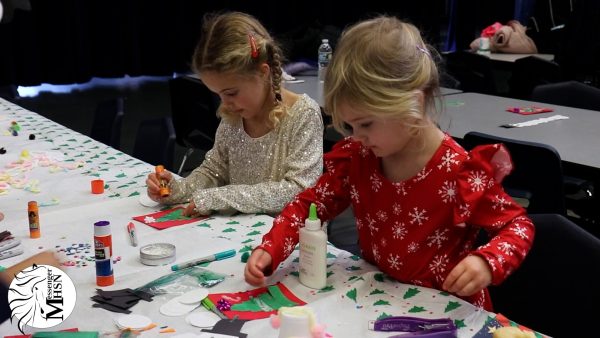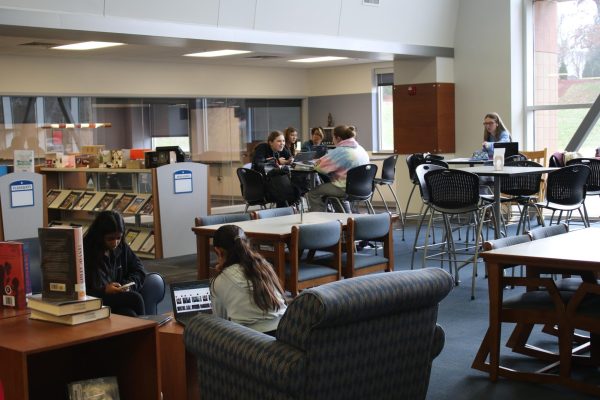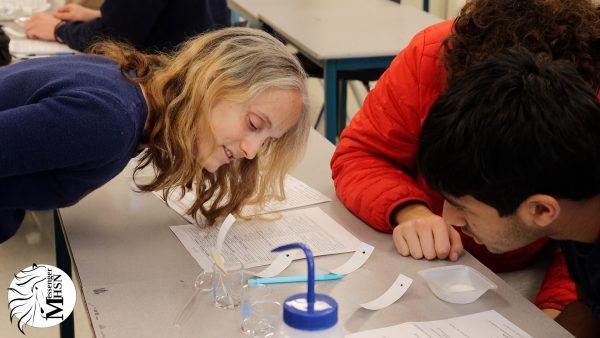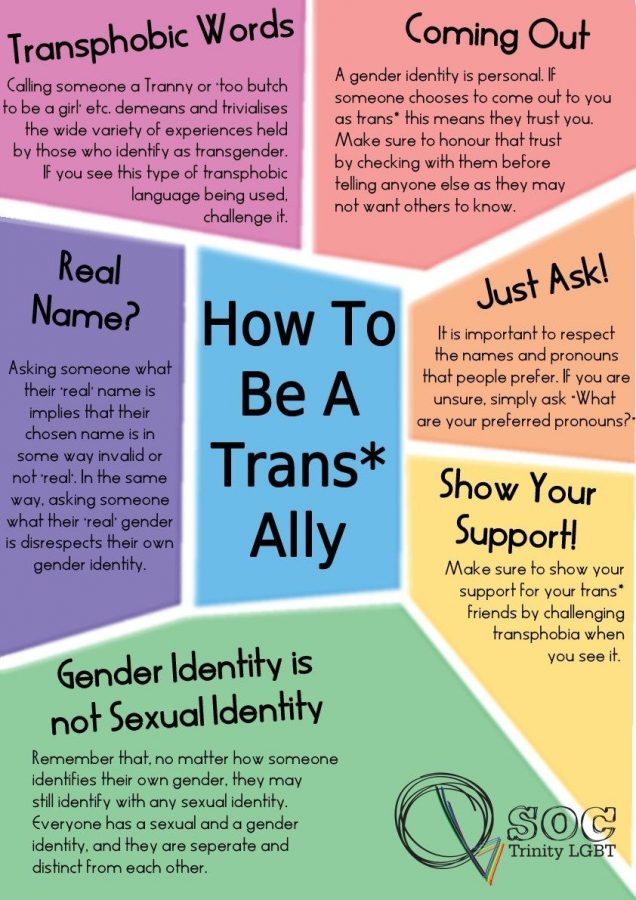Mental Health in the LGBTQ+ Community
Media by Lauren Williams
Resources are being provided to teachers as professional development to help them create a safe environment for students regardless of gender or sexual orientation. “Just a pride flag in the hallways can mean the world to LGBTQ+ kids, both in and out of the closet,” said Katelyn Siegel, sophomore.
“If you’re miserable you can feel it deep in your chest and stomach.”
Madison Horwitz, sophomore, is all too familiar with these feelings as she is one of many youths in the LGBTQ+ community who struggles with mental illness.
“It affects your ability to be able to function in daily life.”
For at least two weeks in the previous year, 71 percent of LGBTQ+ youth reported feeling sad or hopeless, according to the Trevor Project’s National Survey on LGBTQ+Youth Mental Health from 2019.
Despite this, Horwitz considers herself lucky to have been able to grow up in an environment that is accepting of her sexuality.
Though she has no definite label for herself and is not bothered by that, Horwitz does see that this search for an exact definition of one’s identity as a large stressor to members of the LGBTQ+ community.
“It’s fine to not have a label,” Horwitz said. “If your family isn’t accepting, there’s always people who will accept you, whether it be at school, online or anywhere else.”
Not all youth feel this way. In the year prior to the Trevor Project’s survey, 39 percent of LGBTQ+ respondents seriously considered attempting suicide. However, acceptance from a trusted adult can make all the difference in the statistics.
The Trevor Project is an organization that specializes in mental health aid and crisis intervention for LGBTQ+ youth. According to them, this positive social connection can play a vital role in preventing suicide. Horwitz agrees and emphasizes the importance of trust and conversation.
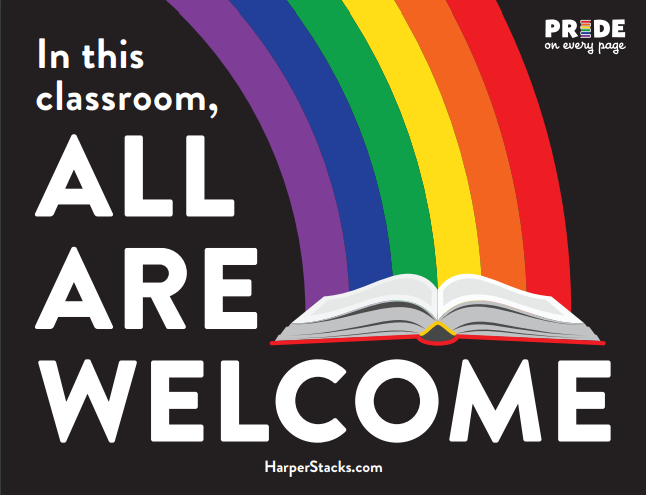
“In the world, we’re definitely seen as different from other people, when we’re really just the exact same,” Horwitz said. “The only difference is who we’re attracted to and who we love.”
Horwitz has been able to find comfort from the stresses of life in mundane activities such as writing in a journal or exercising.
She was able to find help in the MHS community as well. After speaking to her girlfriend who had gone to Gay Straight Alliance (GSA) at her own school, Horwitz decided to give it a try at MHS. She ended up making friends who she remains in contact with to this day.
GSA is one of the many programs created to ensure LGBTQ+ youth feel more comfortable among their peers, and the club prioritizes students’ mental health.
William Everson, sophomore, is an active member of the club and said it exists to provide a safe space to vent as well as to meet and help others who may be struggling.
The club often discusses the importance of encouraging teachers to use preferred pronouns and names before specific parent instruction.
“Trans students are really struggling, in some regards, just because so many of them don’t have accepting parents or guardians,” Everson said. “If [parents] don’t accept it, the school can’t accept it.”
Everson appreciates the steps some teachers have taken to create a welcoming environment for LGBTQ+ students, though, such as the signs that say “I am an ally.”
Creating a good mental space for students is incredibly important, Everson said. Poor mental health can lead to failed classes, lost motivation and damaged futures.
“Consistently bad mental health can ruin people in ways that physical health can’t,” Everson said.
Milan Sloan, sophomore, has experienced this emotionally taxing phenomenon for themself. Sloan, who identifies as non-binary and pansexual and uses they/them pronouns, found pain in not only the low points but in the healing process as well, often feeling worse than before, undeserving and guilty of needing help..
Overtime, however, Sloan was able to find themself and takes comfort in knowing their friends and family are there to support them despite any invalidation they may receive from others.
“I know myself, and I know I am valid,” Sloan said. “As valid as any ‘normal happy’ person.”
With many friends who are a part of the LGBTQ+ community, Sloan tries to be open and supportive to anyone who comes to them because they know their friends’ lives can be stressful.
Despite support from friends, mental health can sometimes be challenging, but Sloan has found outlets in activities such as yoga, watching movies, writing songs, coloring and writing stories.
“Good coping skills are important,” Sloan said. “There won’t always be good days, but having a safe space also helps.”
Mental health can shape the way a person thinks about themselves as well as their behavior, and Sloan emphasizes the importance of seeking help for oneself.
“It’s okay to be different,” Sloan said. “You could be gay, bi, non-binary or genderfluid, but you are still entitled to happiness. Don’t wait to tell someone or struggle alone.”
Emily Thompson, French teacher, also emphasizes seeking support and evaluates all students’ backgrounds when considering who would be best to help them. As a member of the LGBTQ+ community, she said her exposure to other members has helped her to understand the challenges her students are facing.
She encourages staff members to take the time to learn about the LGBTQ+ community and their perspectives to better understand and accept differences among students.
“The more you normalize it, the more comfortable students will be,” Thompson said.
Though reactions to her coming out have been fairly positive, Thompson said it is always a cause of anxiety and concern whenever someone does it. Because being a part of the LGBTQ+ community is not a societal “norm,” people don’t usually assume this part of someone’s life.
“The most difficult thing about coming out is that you never stop doing it,” Thompson said. “At some point you will have to address it with just about every person in your life.”
Though this consistent sharing proves to be stressful, Thompson often utilizes mindful activities such as short breathing exercises to help identify stressors in her life and recommends LGBTQ+ members to find a community that is supportive and relatable.
“When it comes to the LGBTQ+ community, everyone’s experience is vastly different,” Thompson said. “Everyone deserves to be helped, even if they do not feel like it at the time.”
Your donation will support the student journalists of Marquette High School. Your contribution will allow us to purchase equipment and cover our annual website hosting costs. You may become a PATRON by making a donation at one of these levels: White/$30, Green/$50, Blue/$100. Patron names will be published in the print newsmagazine, on the website and once per quarter on our social media accounts.
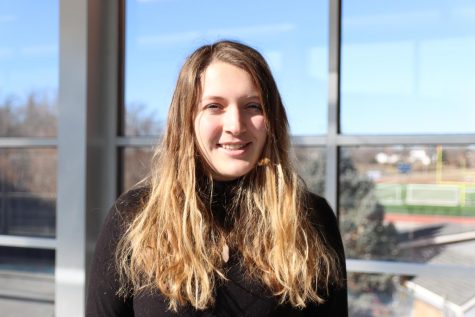
Marin Ellington (she/her), senior, is the Editor in Chief of the Marquette Messenger. In addition to her involvement in student journalism at Marquette,...




